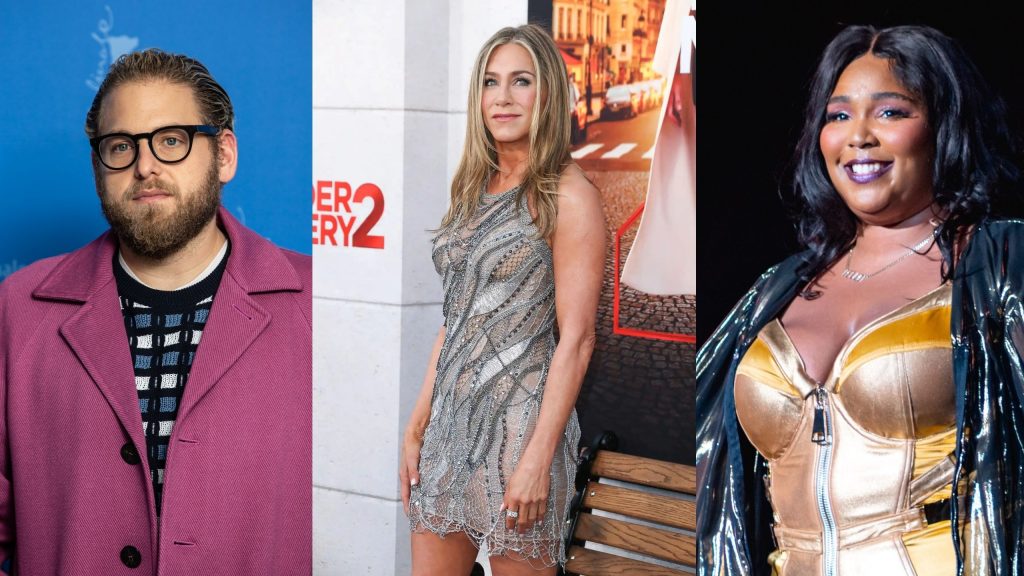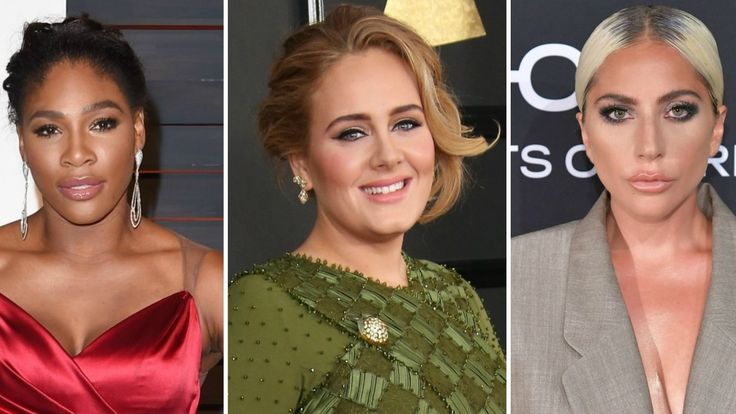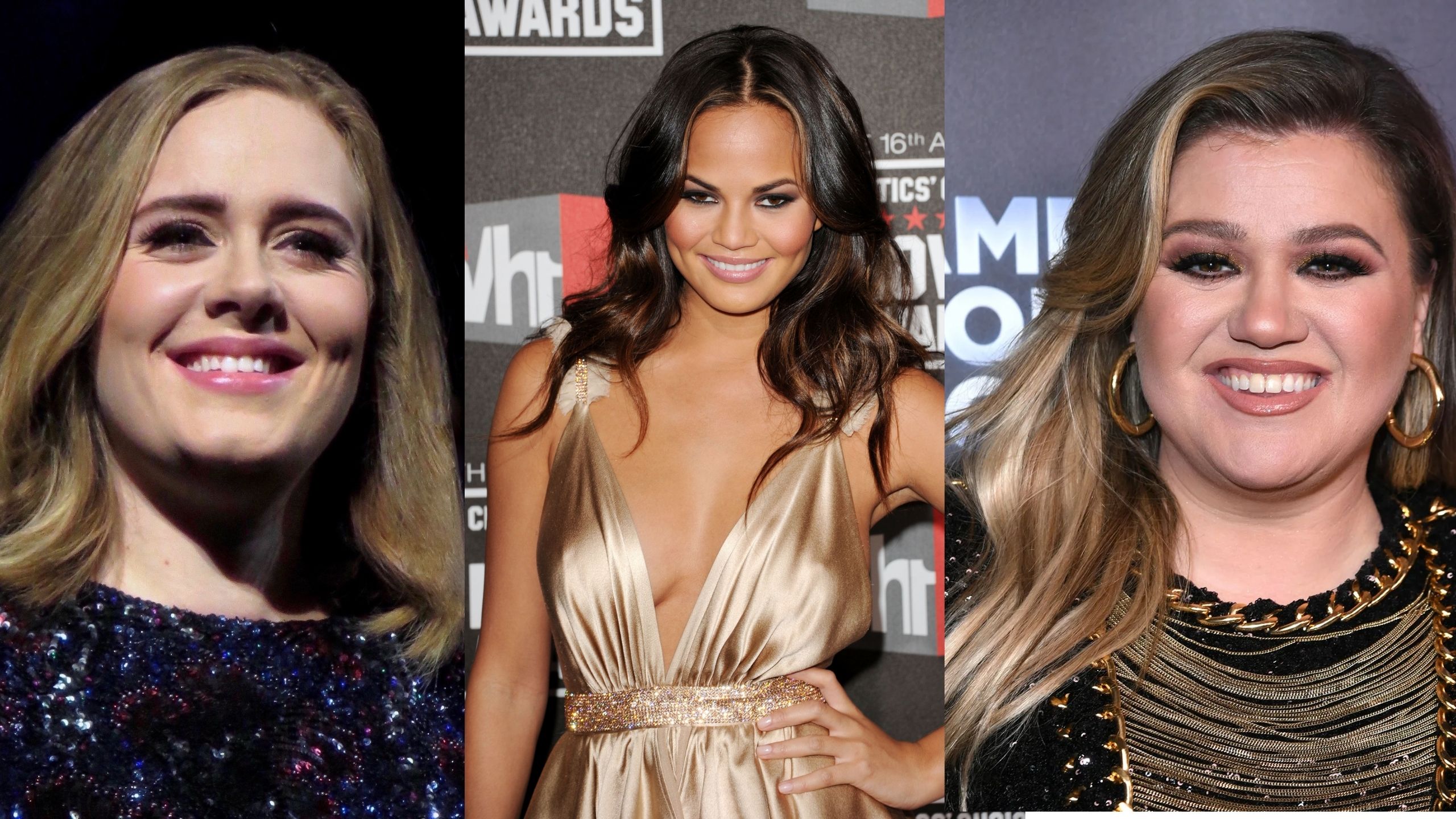Celebrities Who Have Been Body-Shamed
Body shaming is a pervasive issue that affects many individuals, including celebrities, who often find themselves in the public eye. Despite their fame and success, numerous famous personalities have experienced criticism about their bodies. Here are some notable celebrities who have been body-shamed, highlighting their experiences and the impact of such scrutiny.

1. Chrissy Teigen
Chrissy Teigen, the model and television personality, has been open about her struggles with body shaming. After giving birth, she faced harsh criticism regarding her post-pregnancy weight. Teigen has bravely shared her journey on social media, advocating for body positivity and challenging unrealistic beauty standards.
2. Adele
Adele, the Grammy-winning singer, has also faced body shaming throughout her career. Despite being celebrated for her incredible voice, she has been criticized for her weight fluctuations. In response, Adele has emphasized the importance of self-acceptance and has encouraged her fans to focus on their talents rather than their appearance.
3. Kelly Clarkson
Kelly Clarkson, known for her powerful vocals, has been subject to body-shaming comments, particularly during her weight loss journey. She has addressed the issue publicly, expressing her frustration with societal pressures and emphasizing that her worth is not determined by her size.
Advice : Weight Loss Surgery Turkey
4. Jonah Hill
Jonah Hill, the actor and filmmaker, has openly discussed the impact of body shaming on his mental health. Throughout his career, he has faced criticism for his weight, leading to feelings of insecurity. Hill has spoken out against body shaming, advocating for a shift in focus from appearance to personal well-being.
5. Lizzo
Lizzo, the singer and body positivity advocate, has faced significant body shaming due to her size. Despite the negativity, she has used her platform to promote self-love and acceptance, encouraging others to celebrate their bodies. Lizzo’s confidence and resilience have made her a powerful voice against body shaming.
6. Jennifer Aniston
Jennifer Aniston has also been subjected to body shaming, particularly regarding her appearance during various film projects. The actress has often addressed public scrutiny surrounding her body and has emphasized the importance of mental health over societal expectations.
These celebrities exemplify the challenges of body shaming in the public eye. Their experiences highlight the need for greater awareness and compassion regarding body image, encouraging a cultural shift toward acceptance and support for individuals of all shapes and sizes.
Advice: Gastric Balloon Turkey
What is Body Shaming?
Body shaming refers to the act of mocking or humiliating someone based on their physical appearance, often focusing on weight, shape, or size. This form of bullying can occur in various contexts, from casual conversations to public forums, and has become increasingly prevalent with the rise of social media.
For instance, fat female celebrities frequently face scrutiny for their weight, leading to negative perceptions and unhealthy comparisons. Body shaming affects not only the self-esteem of those targeted but also perpetuates societal norms that prioritize unrealistic body standards. Many celebrities, including those who have been body shamed for their height and weight, have spoken out against this harmful behavior, advocating for body positivity and acceptance.
What Are the Causes of Body Shaming?
Body shaming arises from a complex interplay of societal, cultural, and personal factors. Understanding these causes can help address and combat the negative behavior effectively. Here are the primary causes of body shaming:
- Media Representation:
The media plays a significant role in shaping societal ideals about body image. Television shows, movies, and advertising often promote unrealistic standards of beauty, primarily showcasing thin, toned individuals as the epitome of attractiveness. This narrow portrayal can lead to feelings of inadequacy among those who do not fit this mold, prompting them to shame others who are perceived as “different,” including fat female celebrities and overweight celebrity women. - Cultural Norms and Values:
Different cultures have varying ideals regarding body size and shape. In many Western societies, there is a prevailing belief that thinness equates to health, beauty, and success. This cultural bias can marginalize individuals with different body types, leading to body shaming, especially against those who fall outside the accepted norm. The stigmatization of larger bodies often reflects deeper societal issues related to worth and value. - Social Media Influence:
The rise of social media has amplified body shaming behaviors. Platforms like Instagram and Twitter allow users to share their opinions widely, often leading to harsh criticisms of celebrity body sizes. The anonymity of online interactions can embolden individuals to express negative opinions without accountability. This environment often fosters a culture of comparison, where chubby female celebrities and fat famous people male are scrutinized, leading to a cycle of body shaming. - Personal Insecurities:
Individuals who struggle with their body image or self-esteem may project their insecurities onto others. This phenomenon, known as “displacement,” occurs when someone uses body shaming as a coping mechanism to deal with their feelings of inadequacy. By putting others down, they may feel a temporary boost in their self-worth, perpetuating a cycle of negativity. - Peer Pressure and Bullying:
Body shaming often occurs in social settings, where individuals may feel pressured to conform to certain beauty standards set by peers. Bullying in schools and workplaces can lead to targeted harassment based on appearance. This behavior is particularly damaging as it can have lasting effects on mental health, leading to anxiety, depression, and social withdrawal for those targeted. - Historical Context:
Body shaming has roots in historical attitudes toward health and beauty. Over time, societal standards have evolved, but the remnants of those earlier beliefs can still influence contemporary views. For example, societal associations of wealth and status with thinness can perpetuate body shaming, as people equate being thin with being successful or desirable.
Understanding these causes of body shaming is essential for fostering a more inclusive and compassionate society. By addressing the underlying issues, we can work towards promoting body positivity and acceptance, ultimately reducing the prevalence of body shaming in all its forms.
The Role of Social Media in Body Shaming
Social media plays a pivotal role in the perpetuation and spread of body shaming. Platforms like Instagram, Twitter, and Facebook amplify voices, allowing individuals to share their opinions—often harshly—about celebrity appearances. For instance, fat famous actresses and overweight celebrity women frequently become targets of online ridicule, with users commenting on their looks in derogatory ways.
The accessibility of social media also means that body shaming can happen anonymously, emboldening people to express negative opinions without facing direct consequences. This environment can create a toxic culture where chubby female celebrities and even fat famous people male are scrutinized for their bodies. While social media has the potential to promote body positivity, it often serves as a double-edged sword, making it vital for users to engage constructively and supportively. Celebrities have increasingly used their platforms to combat body shaming, sharing messages of self-acceptance and challenging unrealistic beauty standards.
Understanding the Different Types of Body Shaming
Body shaming can manifest in various forms, each with distinct impacts on individuals. Common types include derogatory comments about body weight, shape, or size. For example, celebrities who got fat often face public outcry and harsh criticism, leading to significant emotional distress. Another form is the comparison of female celebrity bodies, where individuals are pitted against each other based on their appearances.
This can create a competitive atmosphere that fosters negativity and insecurity. Moreover, there’s the issue of fat shaming versus skinny shaming; while overweight celebrities female may be criticized for their size, those who are perceived as too thin can also face backlash. Understanding these different types of body shaming is crucial for recognizing the broader implications of societal beauty standards. By raising awareness, we can work towards creating a culture that celebrates diversity and promotes healthy body image.

How Body Shaming Influences Mental and Physical Health
The influence of body shaming on mental and physical health is profound and alarming. Individuals who are body shamed often experience low self-esteem, anxiety, and depression. For instance, many famous people that are fat have opened up about their struggles with mental health, revealing how constant criticism can lead to feelings of inadequacy. Body shaming also correlates with unhealthy behaviors, such as disordered eating or excessive exercise, as individuals may attempt to conform to societal standards.
For overweight female celebrities, the pressure to maintain a certain image can lead to extreme dieting or unhealthy weight loss practices, further harming their physical health. Furthermore, the stigma surrounding body size can deter individuals from seeking medical help or engaging in physical activities, leading to long-term health consequences. Recognizing the impact of body shaming is essential for fostering a supportive environment where all body types are accepted and celebrated, promoting overall well-being for everyone.













